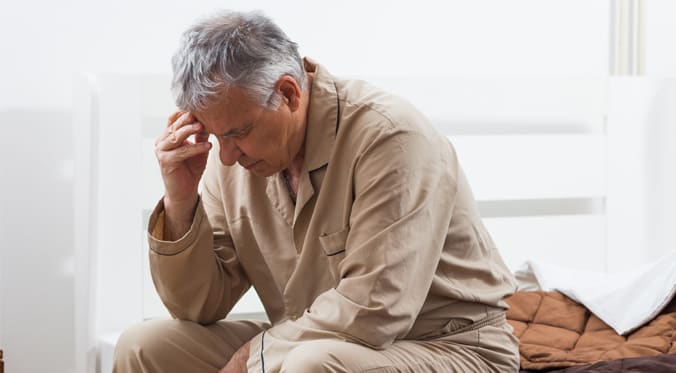Prostate Cancer and Depression

A prostate cancer diagnosis can be devastating and terrifying. Not just to the man who receives the results, but to the family and friends around him. The word “cancer” alone can bring about uncertainty, fear, anger and stress – what now? Who do I talk to? What are the options? What’s my prognosis? Depression and stress often occur together, and depression has been linked to shorter survival times for cancer patients. So, dealing with the depression associated with a prostate cancer diagnosis is a helpful step in recovery and treatment; not just for the men, but also for those who are also affected by depression caused by a prostate cancer diagnosis.
Today, even with the seriousness of a diagnosis, new and promising treatments and a possible cure make living with prostate cancer more possible than it was just five or ten years ago. That’s the good news. We haven’t cured prostate cancer. Yet. And while those treatments for prostate cancer can remove the disease almost entirely, the effects can be tough on a man both physically and mentally. Extended treatments like ADT (Androgen deprivation therapy) can leave man drained and unenergetic. Other treatments like removal of the prostate can lead to side effects like ED (erectile dysfunction).
After treatment, the recovery process can be tough as men try to return to their normal lives. Only recently has the effect on wives and family been addressed. In a study published and presented at the European Association of Urology (EAU) conference earlier this month, it was revealed that many wives of advanced prostate cancer sufferers feel that their lives are being undermined by their husband’s illness, with nearly half reporting that their own health suffered. Many felt increasingly socially isolated. Their husbands were fatigued both by the illness and by the treatment, which meant that they couldn’t socialize as a couple, which made the women feel cut off from social support.
RN Jeanne Avlastenok continued, “They also gradually developed a real fear of being alone, even within the relationship. They felt that they had to be strong, which meant that they couldn’t share the burden of the illness.”
Commenting, Professor Hein van Poppel (Leuven, Belgium), EAU Adjunct Secretary General for Education, said:
“Many prostate cancer patients have a hard time, both physically and emotionally, and this work shows that this stress can spill over and affect wives and partners. This is good for neither of them. Good mental and emotional health needs to be part of how we judge a treatment, and we need to try to ensure that both patients and their partners get the support they both need”.
No matter why you have depression, whether from a personal diagnosis of prostate cancer or being close to someone who has prostate cancer, don’t worry. You are not alone.
And, there are ways to combat its effects:
- Seek medical attention for changes in attitude
- Find and join a support group – If you need help in finding a support group, you can check out our list of prostate cancer support groups and organizations
- TALK to family and friends
- Write expressively – writing about your experience can lessen the mental effects
And if you are looking to get information or learn from the experience of others in a private setting, join one of our amazing Facebook support groups at www.facebook.com/pcf.org/groups. Everyone there is going through or has gone through the same thing and they are there to help and encourage everyone through side effects of prostate cancer, including depression.










